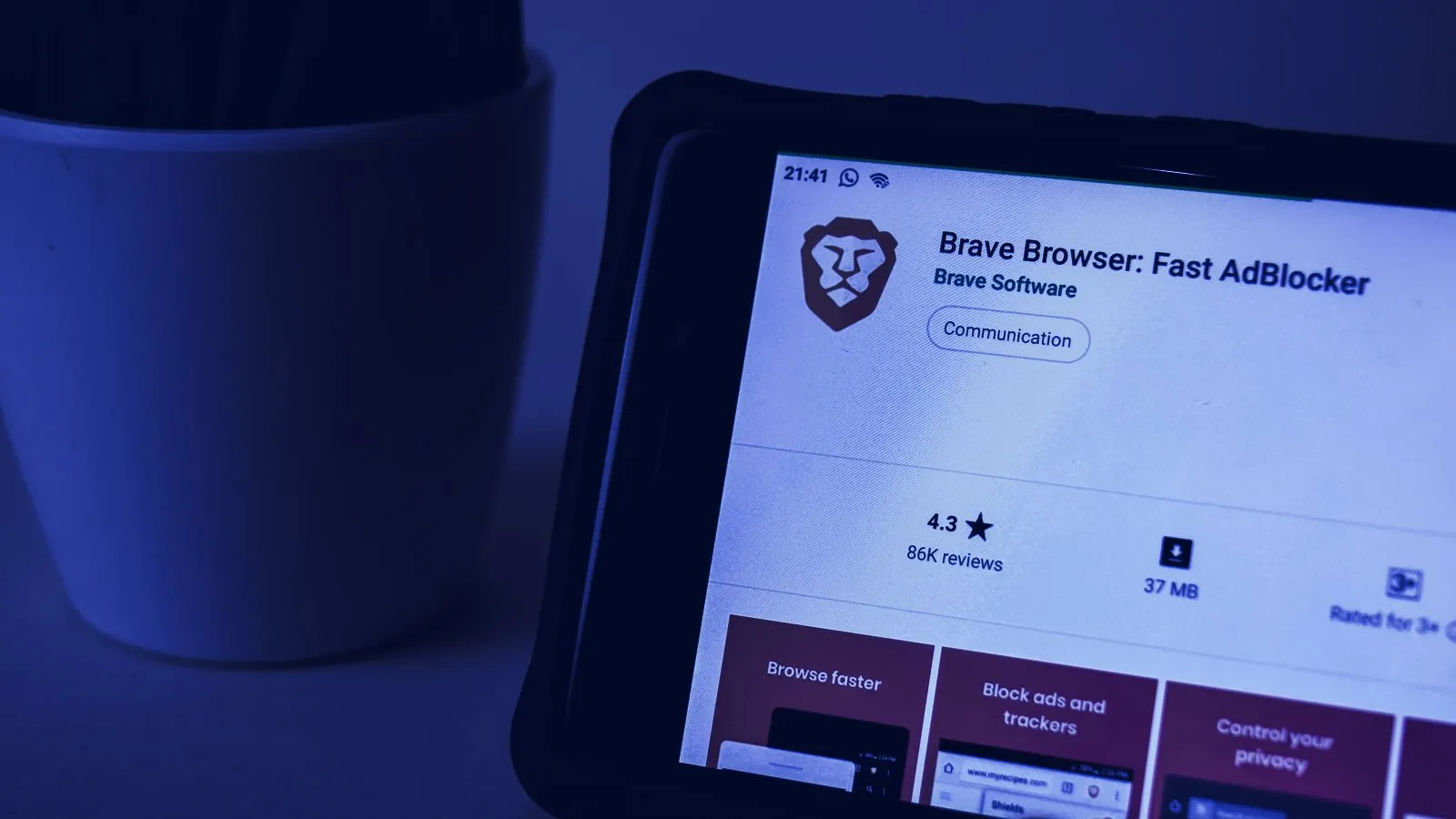in brief
- Brave CEO Brendan Eich appeared on the Founders of Web 3 podcast this week.
- Eich spoke about the evolution of ad tracking from his time at Netscape until now.
- Brave blocks ad tracking and lets users earn BAT. It has 15 million monthly active users.
Privacy-centric, crypto-infused web browser Brave is booming. Not only did the company just report 15 million monthly active users—a 50% uptick from December—but even massively popular podcast host Joe Rogan showed some love on his show this week.
Before continuing, check out our Brave browser review!
If you’re unsure as to how a browser like Brave differs from heavyweights like Chrome and Safari, company founder and CEO Brendan Eich laid out his case on a new episode of Outlier Ventures’ Founders of Web 3 podcast this week.
Eich is no newcomer to the browser game. He created JavaScript while at Netscape back in 1995 and later moved to Mozilla, where he was chief technical officer and briefly CEO.
He tapped into that veteran experience in the episode, walking listeners through an intricate retelling of how web tracking and “surveillance capitalism” came to be over the years—and why he ultimately founded Brave to give users a way out of that cycle.
“With Brave, we wanted to get a better way going,” Eich explained. “Not just to protect users from tracking, which is their right, but let our users choose individually to give back something in lieu of the ad revenue that was being lost through blocking tracking.”
Brave blocks ad tracking by default, which also can result in a speed boost compared to other browsers. Users can earn the Basic Attention Token (BAT) cryptocurrency in Brave and then opt to give that to publications—either on a regular basis or as one-time tips—or keep it for themselves. In the future, users will be able to transfer BAT to an external wallet.
“We block all of the conventional ad tech,” said Eich. “We’re not the blind slave of the ad tech companies as a browser.”
While Eich said that Brave had been “ahead of the curve” in terms of privacy tools, he noted that other browsers have started to make a push in that respect—even if it’s not quite as comprehensive or core to the experience as what Brave offers.
“Reform is coming,” he said about the Web 2 browser business model. “You’re seeing everybody try to spray on some privacy perfume, whether they’ve showered or not.”
Listen to the full Founders of Web 3 episode for Eich’s perspective on the history of web tracking, the evolution of JavaScript since his initial creation of it, and Brave’s opportunity to disrupt existing ad tech models.

